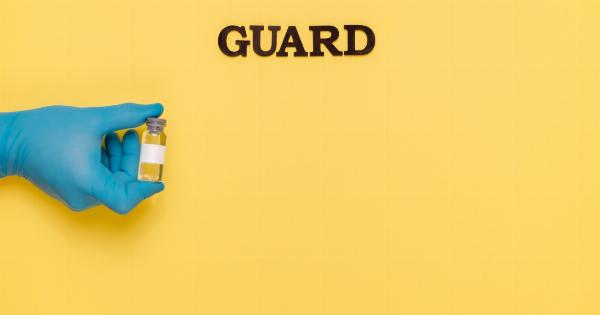As pet owners, we all want our puppies to live healthy and happy lives. Two major concerns that arise when it comes to their well-being are allergies and obesity. Both can have long-term effects on their health and quality of life.
In this article, we will discuss how you can protect your puppies from allergies and obesity by using the “Protection Shield” approach.
Allergies in Puppies
Allergies can affect puppies just as they do humans. Common allergens for puppies include dust, pollen, certain foods, and even fleas. It’s important to identify the signs of allergies early on to provide the necessary protection and relief.
Look for symptoms such as excessive itching, red or inflamed skin, sneezing, coughing, or difficulty breathing.
Preventing Allergies
Prevention is key when it comes to allergies. Here are some measures you can take to protect your puppies:.
1. Regular Grooming
Regular grooming sessions help remove any potential allergens that may be present in your puppy’s coat. Brushing their fur frequently and bathing them with gentle, hypoallergenic shampoos can significantly reduce the risk of allergies.
2. Clean Living Environment
Keeping your puppy’s living environment clean is crucial. Regularly vacuum carpets, rugs, and upholstery to eliminate dust and other allergens that may accumulate.
Wash their bedding frequently using hypoallergenic detergents and avoid using strong cleaning products that can irritate their skin.
3. Balanced Diet
Providing a balanced diet is important for overall health, including immune system support. Consult with your veterinarian to ensure your puppy’s diet meets their specific nutritional needs.
Avoid feeding them foods that may trigger allergies, such as certain grains or artificial additives.
4. Regular Veterinary Check-ups
Regular veterinary check-ups are essential to catch any potential allergies early on. Your veterinarian can perform tests to identify specific allergies and provide appropriate treatment options.
Treating Allergies
If your puppy already suffers from allergies, there are several treatment options available. Your veterinarian may prescribe antihistamines or other medications to alleviate symptoms.
It’s important to follow their guidance and administer medications as directed.
Obesity in Puppies
Obesity is a growing concern among puppies, just as it is in humans. Excess weight can lead to various health issues, including joint problems, heart disease, and a decreased lifespan. Preventing obesity is vital for your puppy’s well-being.
Tips to Prevent Obesity
Here are some tips to help protect your puppies from obesity:.
1. Portion Control
Proper portion control is crucial to avoid overfeeding your puppy. Follow the feeding guidelines provided by your veterinarian based on your puppy’s age, weight, and activity level.
Avoid giving in to their pleading eyes and stick to the recommended amounts.
2. Balanced Diet
Ensure your puppy’s diet is nutritionally balanced. Choose high-quality puppy food that meets their specific needs. Avoid feeding them excessive treats or table scraps, as these can contribute to weight gain.
3. Regular Exercise
Regular exercise is key to maintaining a healthy weight. Engage your puppy in daily physical activities such as walks, playtime, and interactive games. These not only help burn calories but also provide mental stimulation.
4. Avoid Free-Feeding
Free-feeding, where food is available at all times, can lead to overeating. Establish a feeding schedule and stick to it. Remove any uneaten food after a designated time to avoid overconsumption.
5. Seek Professional Advice
If you’re unsure about your puppy’s appropriate weight or need guidance on their diet and exercise routine, consult with your veterinarian. They can provide personalized recommendations based on your puppy’s specific needs.
Conclusion
Protecting your puppies from allergies and obesity is essential for their overall health and well-being.
By following the “Protection Shield” approach, which includes preventive measures and appropriate treatments, you can ensure your puppies live a long and healthy life. Remember to consult with your veterinarian for any specific concerns or advice tailored to your puppy’s needs.































